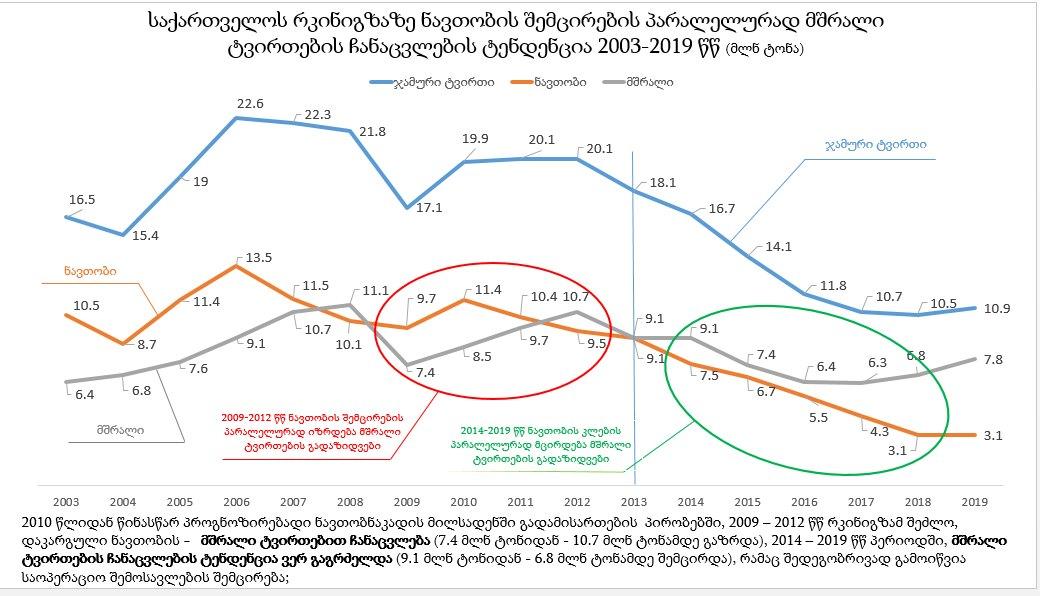
It is widely known that since the transportation of oil moved from the railway to the pipeline, the redistribution of goods by land transport has changed.
The international practice shows that road and rail transport replaced the oil with dry goods, and countries revised their transport policy.
Paata Tsagareishvili, Head of the Center for the Study of the Transport Corridor of Georgia, commented on how much the Georgian Railway has managed to replace oil transportation with dry goods in the context of the movement of oil flow predicted back in 2010 to the pipeline.
"In 2009-2012 The Georgian railway was able to replace the "lost" oil with dry cargo - the red oval in the figure (the volume of dry cargo increased from 7.4 million tonnes to 10.7 million tonnes). In 2014-2019 The Georgian railway failed to maintain the trend of dry cargo substitution. On the contrary, the reduction is a green oval in the figure (the volume of dry cargo decreased from 9.1 million tonnes to 6.8 million tonnes). It led to a reduction in operating income and worsened the company's financials. Notably, adjusted EBITDA profit in 2011 amounted to 154.2 million US dollars (maximum), and in 2018 - 62 million US dollars (minimum), which indicates a 2-fold reduction," Paata Tsagareishvili stated.
To sum up, the expert added that the inability of dry goods to replace oil transported into the pipeline caused a decrease in the competitiveness of the transport corridor passing through Georgia.
































Bela Gelashvili
News Author